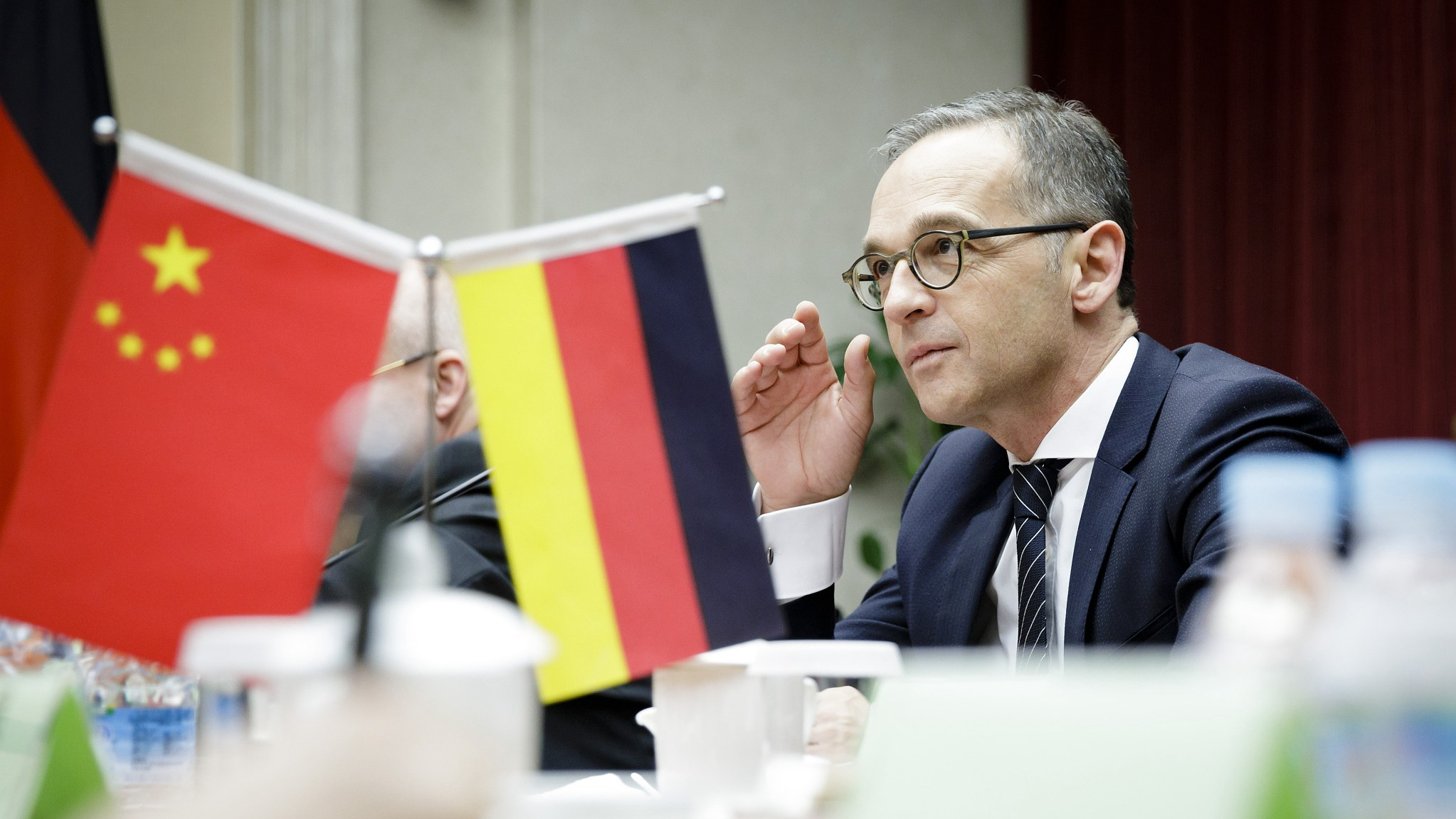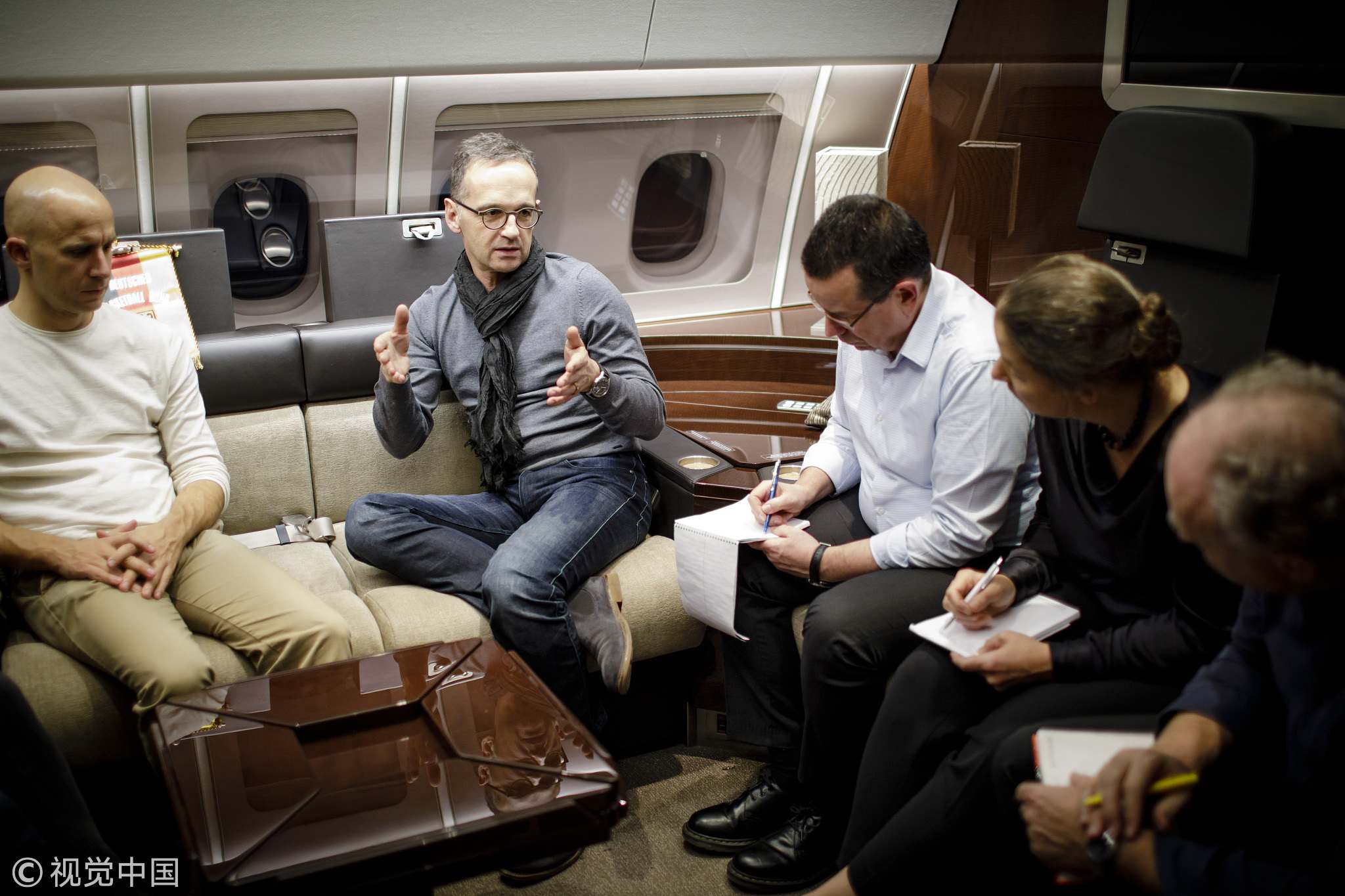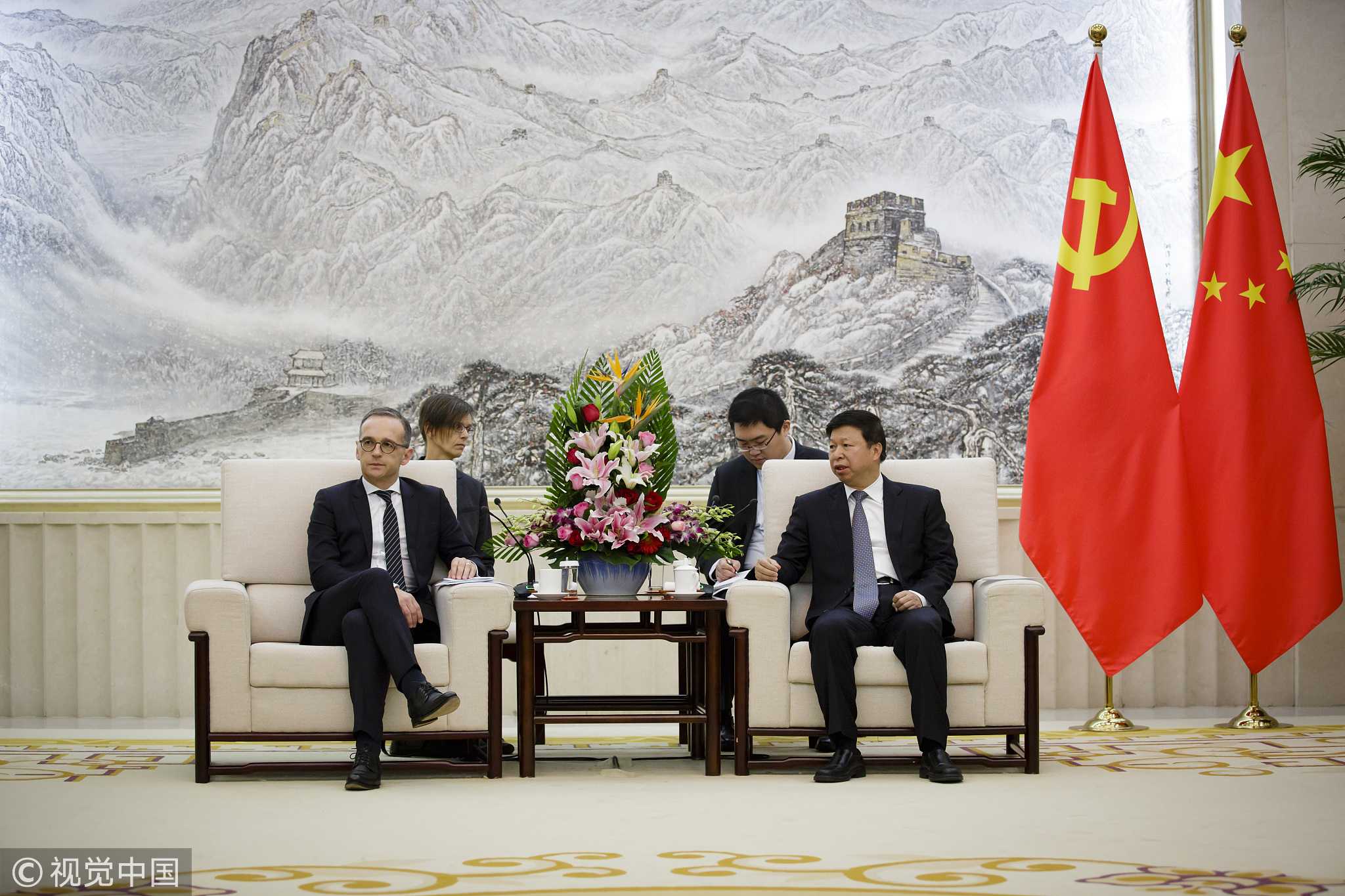
Opinions
22:52, 13-Nov-2018
Opinion: China-Germany relations have solid footing
Updated
21:45, 16-Nov-2018
Wang Peng

Editor's note: Wang Peng is an associate research fellow at Chongyang Institute for Financial Studies under Renmin University of China and Charhar Institute. The article reflects the author's opinion, and not necessarily the views of CGTN.
German Foreign Minister Heiko Maas began an official visit to China from Monday to Tuesday at the invitation of State Councilor and Foreign Minister Wang Yi. During the visit, the two foreign ministers held the fourth round of the China-Germany Strategic Dialogue on Diplomatic and Security Affairs. Media of both countries and the world witnessed a milestone established to connect the two giants at the opposite ends of the Eurasian Continent.
The solid foundation of China-Germany relations

German Foreign Minister Heiko Maas speaks to the press, November 11, 2018. /VCG Photo.
German Foreign Minister Heiko Maas speaks to the press, November 11, 2018. /VCG Photo.
China has held a friendly relationship with Germany ever since its birth. Diplomatic ties between Beijing and Berlin (Eastern Germany) were established in 1950. Decades later, the then West Germany also became an official and important diplomatic partner of China in 1972.
In the past half century, relations developed in a healthy and stable way, especially when China came into the new era of “reform and opening up.” The highly complementary situation between the two countries not only opened a huge and constantly expanding market for Germany, but also a window bringing advanced German science, technology, culture and management experience to China.
In the era of German Chancellor Angela Merkel, China-Germany relations have withstood the test of a series of crises in various fields, such as the global financial-economic crisis, the so-called “Chinese human-rights issue” proposed by a group of German parliament members, and other regional and global challenges.

Chinese State Councilor and Foreign Minister Wang Yi (R) meets German Foreign Minister Heiko Maas in Beijing, November 13, 2018. /MOFA Photo
Chinese State Councilor and Foreign Minister Wang Yi (R) meets German Foreign Minister Heiko Maas in Beijing, November 13, 2018. /MOFA Photo
When it comes to the issue of Germany's role in the UN framework, especially Berlin's position in the UN Security Council, China holds a stable and positive standard that appreciates Germany's contribution in world development and peacekeeping, as well as its sincere attitude toward historical problems with its neighbors.
As a result, China is always welcoming Germany to play a more significant role in regional peacekeeping, global economic order maintenance, humanitarian aid, climate change, and so forth.
In addition to trade, China is also keen to expand its bilateral or multilateral ties with many European/EU countries, and especially the “major engine” of the EU – Germany. To this end, increasing ties with Germany, one of the most influential countries on the continent, is an important goal for China.

German Foreign Minister Heiko Maas (R) meets Liu He, vice premier of China, November 12, 2018, in Beijing. /VCG Photo
German Foreign Minister Heiko Maas (R) meets Liu He, vice premier of China, November 12, 2018, in Beijing. /VCG Photo
The latest report from the European Council on Foreign Relations noted that a new “special relationship” had begun to emerge between China and Germany, as China bet that Berlin would continue to become more influential within the EU, especially in regard with the ongoing flagship project – Belt and Road Initiative in Eurasia. China believes that Germany's growing sway in the EU may reap dividends for China-EU relations along the “Belt”.
Spur the development of Sino-German relations to new highs
As reported, German Foreign Minister Heiko Maas met with senior Chinese officials over bilateral relations in Beijing on Monday. As with many of China's diplomatic initiatives, the primary focus of this trip was economic. Leading a business delegation, Maas left Berlin for Beijing on his first official visit to China from Monday to Tuesday after he assumed office as foreign minister this March.
As Chinese Vice Premier Liu He emphasized in his meeting with Maas that since the “all-dimensional strategic partnership” between China and Germany was launched in 2014, the two countries have boosted their frequent high-level exchanges, and enhanced political mutual trust significantly.

German Foreign Minister Heiko Maas (L) meets Song Tao, head of the International Liaison Department of the Communist Party of China, November 12, 2018, in Beijing. /VCG Photo
German Foreign Minister Heiko Maas (L) meets Song Tao, head of the International Liaison Department of the Communist Party of China, November 12, 2018, in Beijing. /VCG Photo
In response, Maas agrees that the two sides could seize the opportunity to expand their win-win cooperation in various areas continuously, improve global economic governance, and enhance the well-being of the people of both countries as well as the world.
Two countries should both attach great importance to developing their bilateral ties. Germany appreciates China's great determination in “deepen reform and further opening up”, and hence they are also standing ready to promote the bilateral practical cooperation and jointly safeguard the global multilateral economic system with China.
“China is more than just our most important trading partner in Asia,” Maas has admitted. Substantially, Germany and China are in urgent need of closer cooperation to solve many global problems. As a result, resilient bilateral channels such as China-Germany Strategic Dialogue on Diplomatic and Security Affairs are of increasingly great importance for them.
It is widely recognized that during Maas' two-day visit, China and Germany's sincere and frank exchange of views on various key issues will enhance an already strong relationship between these two major countries.
(If you want to contribute and have specific expertise, please contact us at opinions@cgtn.com.)

SITEMAP
Copyright © 2018 CGTN. Beijing ICP prepared NO.16065310-3
Copyright © 2018 CGTN. Beijing ICP prepared NO.16065310-3